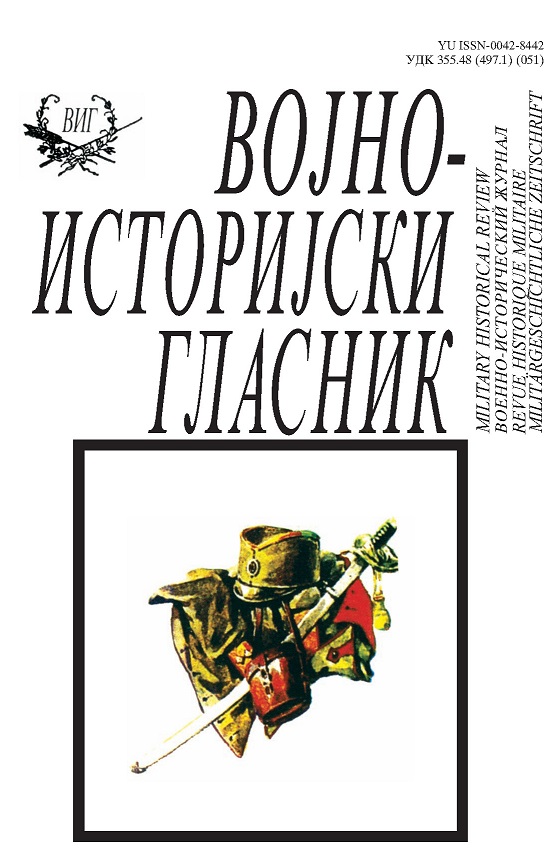Најамничке војске краља Стефана Уроша II Mилутина
Mercenary Armies of King Stephen Uroš II Мilutin
Author(s): Aleksandar UzelacSubject(s): Military history, International relations/trade, Military policy, 13th to 14th Centuries
Published by: Institut za strategijska istraživanja
Keywords: King Stephen Uroš II Мilutin; mercenary armies; 13th – 14th century; Serbia; Bulgarian and Greek mercenaries; Serb-Byzantine war;
Summary/Abstract: In this article, attempt is made to cover several questions related to mercenary armies in Serbia during the reign of King Stephen Uroš II Milutin (1282–1321): origins of the mercenaries, the events in which they took part, their organization, expenses and finally causes of their frequent and numerous presence. The basic and the most visible trait of these mercenary armies is their heterogeneity. Sources speak of the three ethnically distinct groups of mercenaries: those from surrounding lands, Orientals and Westerners. Bulgarian and Greek mercenaries were used in the campaign against Byzantium in 1284 and in later events during Serb-Byzantine war. They also participated in the struggle for the throne between Milutin’s sons Constantine and Stephen in 1321–1322. The Orientals (Turkopoles, Cumans, Alans and Tatars) are mentioned in sources during the civil war between Milutin and Dragutin in 1310–1311, in which they provided crucial help for Milutin’s side, as well as in several subsequent episodes. Western mercenaries were also present in Serbia at the time, but evidences are scanty; the only confirmed example is the case of Francesco de Salomone оf Treviso, who was knighted by Milutin in 1304. The most important of all these groups in military context were the Orientals. Two thousand Cumans who served as king’s bodyguards and 1.500 Turkopols under the leadership of Constantine Malik were the most numerous mercenary contingents, not only during the reign of Milutin, but in Nemanjić state in general. Hiring of the mercenaries was the task given only to the most confidential people; even Milutin’s designated successor Constantine was directly involved. Hiring was expensive and frequently it put the state in great financial straits. Since funds of the state treasury were not sufficient to cover the costs of the mercenary armies, extraordinarily financial measures were taken. In 1310, Orientals were partly equipped and financed from the treasury of Hilandar monastery, while in 1320, in order to secure funds for hiring Greek mercenaries, special financial contribution was requested from authorities of Republic of Ragusa, Numerous and frequent presence of mercenary armies in Serbia at the end of Thirteenth and at the beginning of the Fourteenth century may be linked to internal difficulties and precarious position of the ruler himself. Therefore, due to the unreliability of domestic army who was recruited from the ranks of frequently unfaithful aristocracy, employment of the mercenaries was the need and the necessity. The way in which Stephen Uroš II Milutin used foreign soldiers is an important indicator of the means and ends of the state policies. It is also a vivid testimony of his statesmanlike abilities and qualities.
Journal: Vojnoistorijski glasnik
- Issue Year: 2011
- Issue No: 2
- Page Range: 9-27
- Page Count: 19
- Language: Serbian

